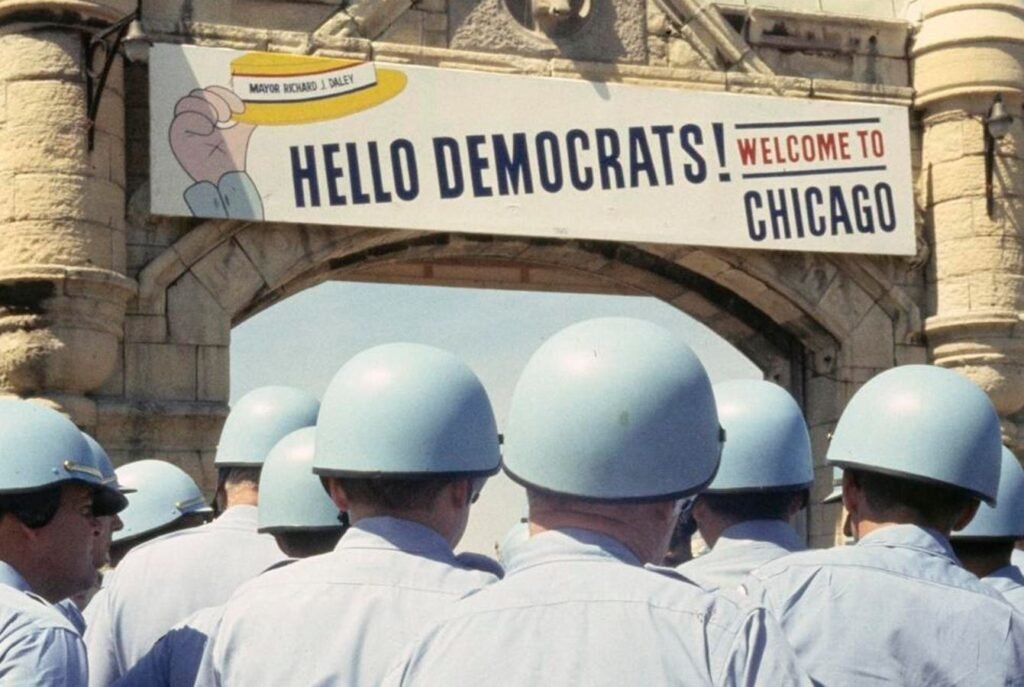Heading into the Democratic National Convention next month, tensions are rising as activists plan demonstrations in Chicago, reminiscent of the chaos that occurred in the city in 1968. Back then, anti-war protesters clashed with police, leading many Americans to view the Democratic party as unable to control extremism. This sentiment ultimately helped Richard Nixon win the presidency. Now, as activists gear up for protests at the convention, the potential for confrontation is palpable, with authorities in Chicago vowing to keep demonstrators away from the convention site.
As the country focuses on the presidential race, it is crucial to heed the lessons from 1968. The party that appears to be controlled by extremists is likely to lose the White House, regardless of whether it is the Democrats or Republicans. With growing polarization in American politics, it is essential to avoid alienating moderate voters by allowing radical elements to take center stage. While issues like inflation, crime, and healthcare are of utmost concern to the American public, it is important for political parties to prioritize commonsense solutions over extremist rhetoric to appeal to a wider audience.
Extreme political actions, driven by personal pleasure rather than a genuine desire to effect change, can backfire and harm the cause being championed. This was evident in the 1969 anti-war protests where radicals replaced American flags with those of the Viet Cong, which did little to sway public opinion. In today’s political landscape, pragmatic approaches that resonate with a broader audience are more effective in achieving meaningful change. Efforts to marginalize extremists within political parties and focus on issues that truly matter to Americans will be key in winning the White House in November.
With the upcoming party conventions, the focus should be on unity and addressing the concerns of the American people rather than giving in to radical elements seeking to sow division. Activists must consider the impact of their actions and whether they are truly advancing their cause or simply indulging in personal gratification. As the nation grapples with political polarization and extremism, it is essential for political leaders to prioritize dialogue, cooperation, and solutions that benefit all Americans. Ultimately, the fate of the country’s democracy rests on the ability to reject extremism and embrace a centrist approach to governance.
As the country braces for a potentially contentious election season, it is imperative to reflect on the lessons of history and strive for a politics of moderation and consensus-building. By avoiding extreme tactics and focusing on issues that resonate with the broader public, political parties can position themselves for success in November. The path to victory lies in appealing to the center and marginalizing radical elements that only serve to undermine the democratic process. In the end, it is up to the American people to uphold the values of centrism and ensure that the country remains a beacon of democracy and unity.

